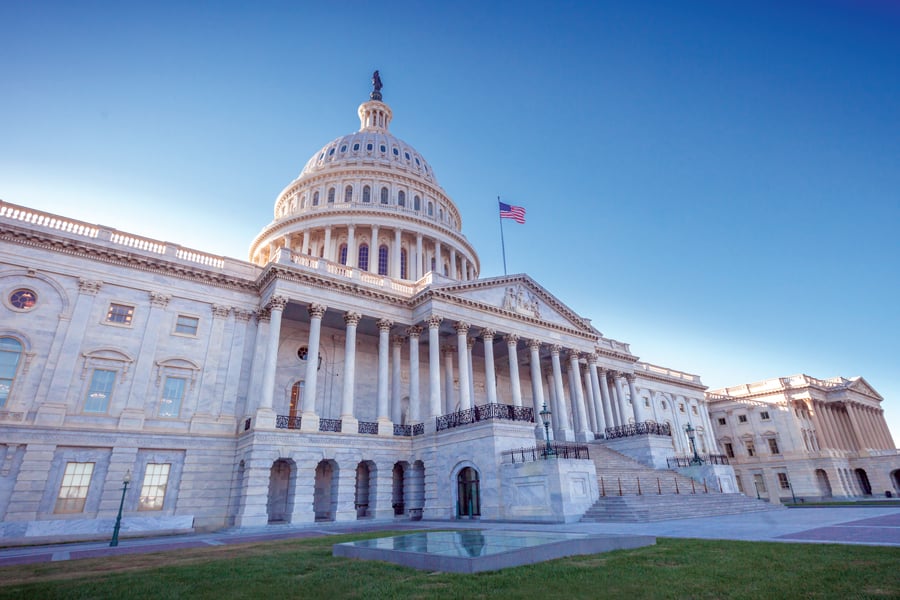

Republicans pushed to increase access to private securities markets for retail investors Wednesday on Capitol Hill, while a key Democrat expressed willingness to entertain the idea — especially if financial advisors are involved.
Lawmakers considered changing the criteria for which investors qualify to buy unregistered securities, such as those that finance start-up companies, at a hearing of the House Financial Services Subcommittee on Capital Markets. Under current rules, a so-called accredited investor must meet a threshold of having more than $1 million in net worth, not counting the value or a home, or make a certain amount of income.
Rep. Ann Wagner, R-Mo. and subcommittee chair, said the restrictions mean that only wealthy investors can participate in private markets, where $4.5 trillion was raised between June 2021 and July 2022, compared to $126 billion in initial public offerings over the same period.
“To increase investment opportunities for all Americans and help entrepreneurs raise more funds, we must broaden the pool of investors in our private markets,” Wagner said at the hearing. “The result of pretending that wealth is a good measure of sophistication is a standard that discriminates against financially sophisticated, lower-income and net worth Americans.”
Legislation that would reform the accredited-investor definition was discussed at the hearing. Republicans introduced bills that would expand the accredited universe to include individuals with certain licenses, education and job experience; those who self-certify; those who invest 10% or less of their net worth or annual income in a private offering; and those who receive a recommendation about a private offering from a financial advisor who is accredited.
The top Democrat on the subcommittee expressed some openness to the notion of making more investors eligible to buy private securities, perhaps if they’re limited to 5% of their net worth or have the appropriate background.
“We shouldn’t be lowering standards; we should be rationalizing standards,” said Rep. Brad Sherman, D-Calif. and ranking member of the panel. “We shouldn’t have wealth as a barrier; we should have sophistication.”
Sophistication could be attained vicariously through an advisor, he said.
“That advisor needs to be a fiduciary, truly independent, not receiving a commission and not expecting to get referred business from the promoter [of a private offering],” Sherman said. “You can have an advisor who is sophisticated as hell. They’re sophisticated in knowing who is paying their fees and who is referring their next client.”
Republicans hold a five-seat majority in the House. Although there likely will be a sharp partisan divide on most legislation in the chamber, bills focusing on capital formation might garner some support on the Democratic side of the aisle.
The Securities and Exchange Commission doesn’t need explicit congressional authority to expand the accredited-investor definition. The agency did so in 2020, allowing people with securities licenses and other credentials to be deemed sophisticated.
But many Republicans are pushing the SEC to go farther. They are concerned that under Chairman Gary Gensler and the Democratic majority at the agency, the SEC will tighten accredited investor criteria in a pending rulemaking.
Investor advocates and state securities regulators have warned about the potential investor harm that could occur if retail investors pile into the private markets in an attempt to boost returns in their portfolios.
They will be at a substantial disadvantage due to a lack of information about private stocks and limited opportunities to sell them, Gina-Gail Fletcher, a professor of law at Duke University, told the House subcommittee.
“Allowing retail investors to access the private markets simply increases the likelihood that everyday investors will be worse off from investing in unproven, opaque investments, with limited liquidity and no information to value their investments,” Fletcher said in prepared testimony.
She pointed to the collapse of the FTX cryptocurrency exchange and the Blackstone Real Estate Investment Trust hitting its redemption limit as recent examples of dangers in the private markets.
“We can expect much of the same or more for retail investors,” Fletcher said.
But another hearing witness called on the SEC to further loosen accredited-investor rules to give more investment opportunities to underrepresented investors.
“Black and Brown people, low-income people, and the middle class are standing at the back of a proverbial line ordered by race, generational wealth and access to resources,” said Omi Bell, CEO and founder of Black Girl Ventures. “Every time you feel like you have gotten closer, the rules are continuously being changed to help or protect those at the front of the line.”
Even if the Republican bills to amend the definition of an accredited investor are approved by the House, it’s unclear how they would fare in the Democratic-majority Senate.

Executives from LPL Financial, Cresset Partners hired for key roles.

Geopolitical tension has been managed well by the markets.

December cut is still a possiblity.

Canada, China among nations to react to president-elect's comments.

For several years, Leech allegedly favored some clients in trade allocations, at the cost of others, amounting to $600 million, according to the Department of Justice.
Streamline your outreach with Aidentified's AI-driven solutions
This season’s market volatility: Positioning for rate relief, income growth and the AI rebound
